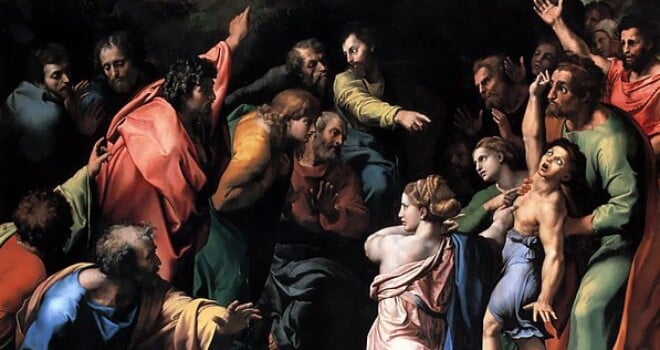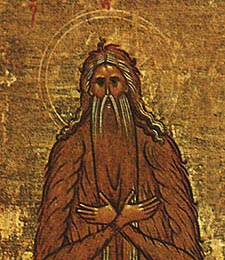In today’s Church a growing number of faithful are troubled by the serious differences arising among them and within their parishes. Alarming reports throughout various news sources chronicle inner institutional Church bickering and disagreements. We see a growing number of Church leaders publicly condemning other Church leaders who hold religious views they consider inconsistent with Church teaching. Facilitated by the proliferation of social media activity, those troublesome issues are intensifying. And they are becoming more prominent and damaging for the Church’s mission to spread the Good News of the Gospel.
These conflicts arise over many topics: the pope, synodality, gender identity, women’s ordination, sexual norms, same sex couples’ blessings, etc., etc. Then, there are the outcries from self-proclaimed faithful conformists, saying that dissenters (i.e. those who don’t accept what “they” say is truth) should be dismissed as detrimental, destructive, disordered—or even condemned as heretics. We also observe those who have decided that a smaller Church, absent of those “nonconformists,” would be the true and better One Holy Catholic Church!
With this context in mind, I have a foundational observation that I ask all of us to consider. Allow me to explain. I was driving along a highway when I saw a huge billboard that read: “THE CREMATION SOCIETY.” Under the title, a photo of a large, closed coffin. Under the coffin, it read: “Think Outside the Box!” Perhaps there is some wisdom we may acquire from billboards . . .
In essence, we may glean the message to Get out of the closed coffin that is imprisoning our minds and hearts. Did not Jesus’ death on the Cross end with His Resurrection which revealed to the world a new reality? A new reality that was certainly outside the box of then Jewish spirituality, practices, norms, and observances. Then and now, there are coffins embedded within our deep-rooted cultural and spiritual awareness. Those closed coffins confine our vision, our perceptions, and our faith in Jesus.
We must challenge our minds’ predispositions and expectations resting in peace, and muster the courage to jolt our understandings and judgements. When Jesus’ tomb opened, and He was no longer there, His followers were compelled to abandon their spiritual comfort zones. Are we Catholics ready now to cut loose from our spiritual comfort zones? Or do we only want to keep resting in peace, closing the coffin on our living faith, shutting out the Holy Spirit’s work in our lives?
We all know how difficult it is to get people to openly, respectfully, and eagerly reach a political consensus. However, how readily are we able to see (let alone admit) that it is becoming just as difficult among Catholics as well? Can we live a truly Christian faith if we regularly practice rejecting others—others seeking spiritual truth and love, albeit differently than we do? Must we insist that all people have freedom “of” religion, but not freedom “in” religion—that is the freedom to seek and ask questions about our Faith? I argue that such a coffin-encased mindset is the antithesis of Jesus’ Gospel Message.
Are we to believe that Jesus was condemned, tortured, and crucified because He was too naïve to see the differences among the people of His time, and among His very own Jewish community, and yet pray “that they may all be one. As you, Father, are in me and I am in you, may they also be in us, so that the world may believe that you have sent me” (John 17:21)?
Jesus’ prayer “that they may all be one” was not a simplistic, naïve, or ignorant petition to His Heavenly Father that all people must look, think, and be the same. As Cardinal Christophe Pierre observed, “The Church is not unanimity; it’s communion. Communion is being able to work together with our differences” (Loyola University Chicago, April 11, 2024). Certainly, Jesus’ prayer to His Heavenly Father was not to create a smaller Jewish community of believers, absent “nonconformists,” to be the culmination of His life, Crucifixion, and Resurrection! The truth of His Father’s Creation presents and proclaims for all to believe that with our differences we can be one without being the same, “as you, Father, are in me and I am in you…”
From nothing, our God created the entire universe by speaking it into existence. A truly incomprehensible universe filled with a kaleidoscopic array and abundance of diversity and differences. A world “visible and invisible,” with spiritual realities and physical ones—land, waters, vegetations, animals, heavens, stars, and humans with various shades of skin colors, different races, and cultures. Indeed, God created the one visible reality that even a blind person can “see” is not all the same!
Could it be that God created a world embraced by a spirituality that clearly, emphatically, powerfully, and resoundingly manifests that “we can have one without the other”? Yes, in God’s creation we are one without being the same because it is our God that created diversity, differences, and distinctions. We can’t have a full and faith-filled Christian spiritual life until we rid ourselves of those closed and buried coffins within our minds, imaginations, and insights.
Our God is One yet three distinct Persons, and it is His image that we reflect. Jesus’ full humanity and full divinity forces us to think outside the box because He becomes that transcendent and holy sacramental manifestation of our God’s array of one in diversity. Jesus calls us to imitate Him, to be “one”—one with our differences, distinctions, and diversity—and to love our neighbors as ourselves.
The Church’s hierarchy, clergy, religious, schools, and all the faithful must live and teach our Catholic faith by welcoming with respect and love all people of goodwill wherever they are on their faith journeys, beliefs, and understandings. Will it be difficult to be that welcoming and open to diversity and differences? No, it’s not a difficulty or heresy—it’s Christianity!
Jesus, live in our hearts FOREVER!
Image from Wikimedia Commons















